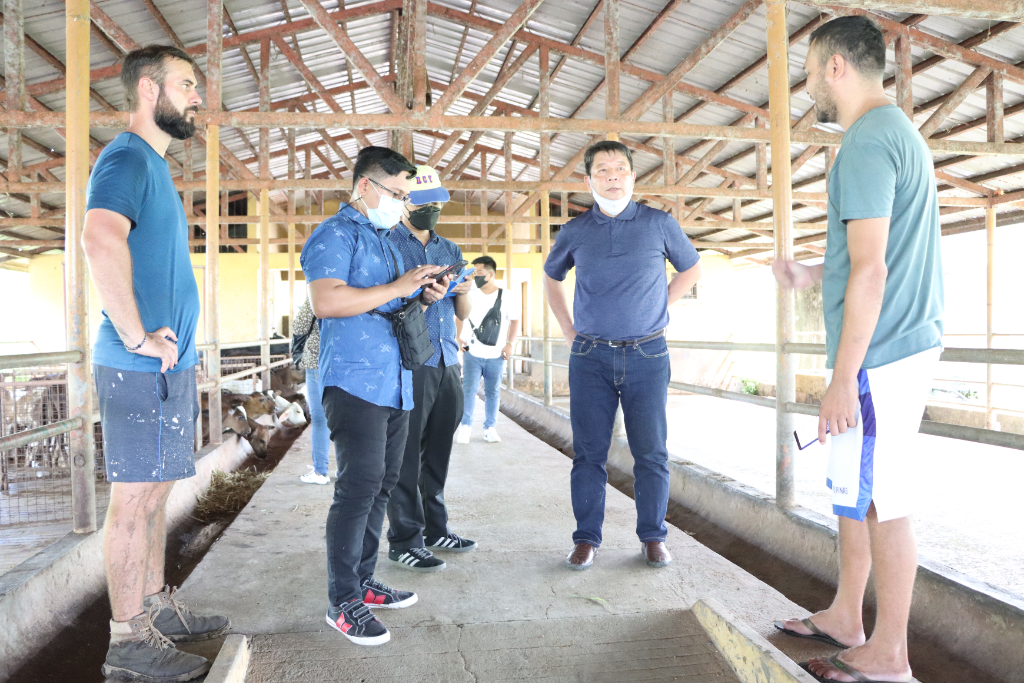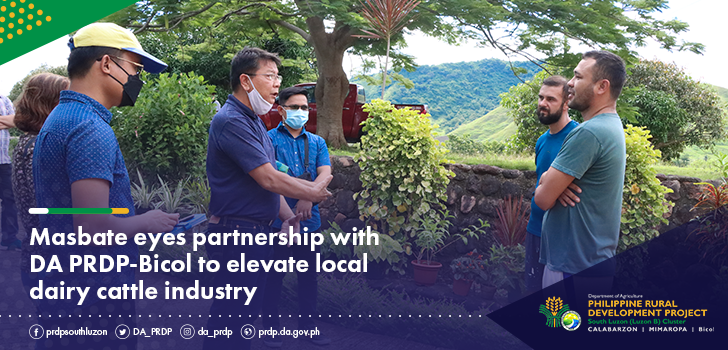
Masbate eyes partnership with DA PRDP-Bicol to elevate local dairy cattle industry
Dairy cattle raising is a growing industry in Bicol. This is based on the results of the latest regional Value Chain Analysis (VCA) on dairy cattle conducted by the Department of Agriculture – Philippine Rural Development Project (DA-PRDP) Local and National Levels Planning Component (I-PLAN) in the region.
As the Philippines’ rodeo country, the DA-PRDP Bicol I-PLAN team is currently assisting the Provincial Core Planning Team (PCPT) in crafting the Commodity Investment Plan (CIP) for Masbate to include dairy cattle as a priority commodity.
During the on-site Joint Technical Review activity held last July 20, 2022, Peter Theodore Caro, DA-PRDP Bicol Planning Officer urged the participants to first visualize their concept of a cattle industry and agree on effectual strategies to establish the fundamentals, particularly doable within the three-year PCIP window. However, consideration must also be given to encouraging a sustainable environment for the industry, especially involving the small-hold raisers, to thrive even beyond the provision of external interventions.
Present during the consultation were members of the PCPT including Provincial Agriculturist Engr. Jonel Orteza, Assistant Provincial Agriculturist Grace Graciana Tagnipez, and Provincial Veterinarian Dr. Hernando Dorongon and Veterinarian II Dr. Roberto Celera of the Provincial Veterinary Office. Dr. Guia Hermoso, Project Development Officer II of the National Dairy Authority (NDA)-South Luzon Department and Marianito Tesorero, Assistant Focal Person for Livestock and Poultry Program and Senior Science Research Specialist at the Albay Research and Development Center, virtually attended the activity and provided specific comments and suggestions on a few relevant VCA segments discussed.
The DA-PRDP Bicol I-PLAN team engaged the PCPT members as Celera presented the Dairy Cattle PCIP Matrix, beginning with constraints identification and elaboration throughout proposed interventions or subprojects to develop each segment of the commodity value chain from input supply, production, consolidation, processing, and marketing to final sale.
The team also conducted a learning exchange and key informant interview (KII) with Fazenda de Esperanza Resident Manager Rafael Silva and volunteer Santiago Bouças in Milagros, Masbate. The I-PLAN team proceeded to the Shared Service Facility on Dairy Processing provided by the Department of Trade and Industry (DTI) to the Local Government Unit of Milagros in Brgy. Bacolod, said municipality. They also had a dialogue with Municipal Planning and Development Officer (MPDO) Jessica Madrilejos.
“Masbate presents a different kind of challenge. This is BEEF cattle country at napakaraming baka pero ang objective namin is to help conceptualize a dairy cattle industry in the province. So the situation, the conditions are quite different as regards CIP Matrices of the mainland provinces we’ve helped set up. We learned that Fazenda de Esperanza actually have dairy cattle. In preparing to set up such an industry, it obviously is an advantage when you have entities that already cover two of the segments in the value chain such as processing and marketing,” Caro said after touring the facility.
With some 153.303 hectares of grassland according to Regional Social and Economic Trends 2018, the region’s dairy cattle population, based from the National Dairy Authority (NDA) and KII in 2020, is only 475 heads despite being blessed with agro-climatic conditions highly favorable for small and large ruminant production.
In addition, with 161 cows in the milk line, the region’s output was just 213,080 liters, equivalent to a mere one percent of the country’s total production in 2020, whereas in the same year, Masbate recorded a decent 11 percent share of Bicol’s produce.
According to Engr. John Jeric Batanes, DA-PRDP Bicol I-PLAN Planning Officer, cattle milk production in the region is mainly affected by various constraints, such as insufficient number of quality and affordable dairy cattle breed, lack of silage production facility, and lack of proper diagnosis on dairy animal diseases.
Thus, Dorongon mentioned that having an approved PCIP will boost the dairy cattle industry in the province.
“Napakahalaga ng project na ito sa probinsya ng Masbate. Kilala ang Masbate bilang cattle country, mabo-boost pa natin ‘yun. Aside from the meat type, ma-explore naman natin ang dairying. It will help lessen the malnutrition state of the children in the countryside and hindi lang ‘yan on the milk but also for the production of milk by-products na ma-enhance na mas marami tayong produktong magawa mula sa gatas ng baka. Ito rin ay magbibigay ng additional income sa ating mga farmers kung kaya maka-expect tayo na tataas ‘yung way of living kasi may additional income na sila. Ito ay productive at magandang pagkakataon para sa mga Masbateño,” he said.
Both regional and provincial I-PLAN teams are targeting a stakeholders’ consultation activity by the end of August 2022 then immediately seek the endorsement of the Provincial Development Council (PDC). After achieving these, eligible proponent groups can proceed on availing PRDP interventions under the Project’s enterprise development (I-REAP) component. (Annielyn L. Baleza, DA RAFIS V/PRDP RPCO V InfoACE Unit with reports from John Jeric A. Batanes, PRDP RPCO V I-PLAN)
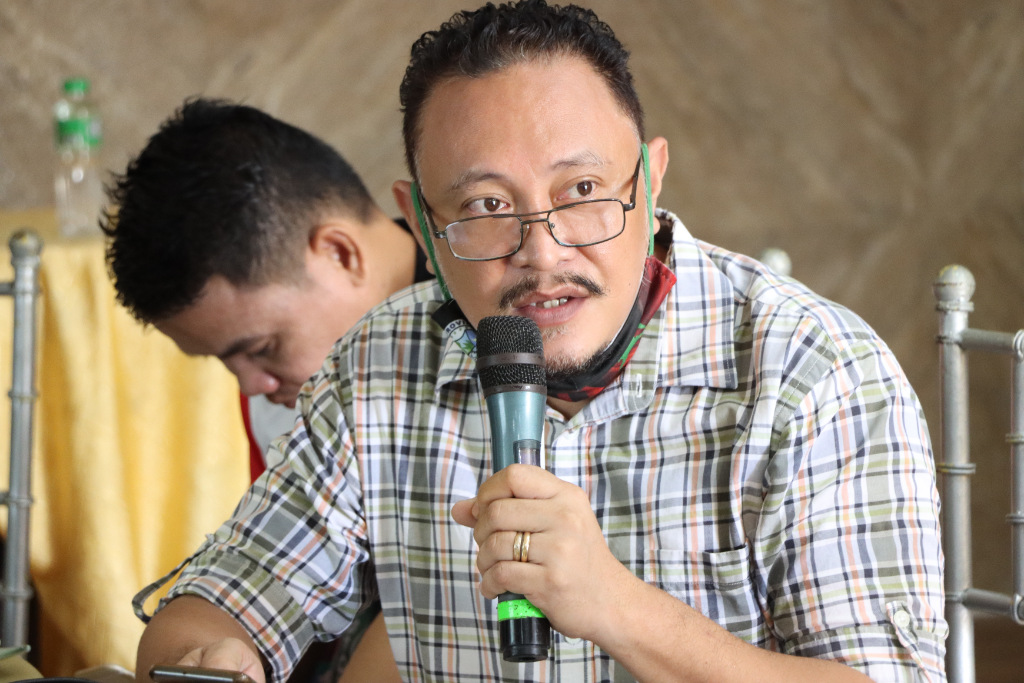
Veterinarian II Dr. Roberto Celera, of the Provincial Veterinary Office presents the Dairy Cattle PCIP Matrix of Masbate.
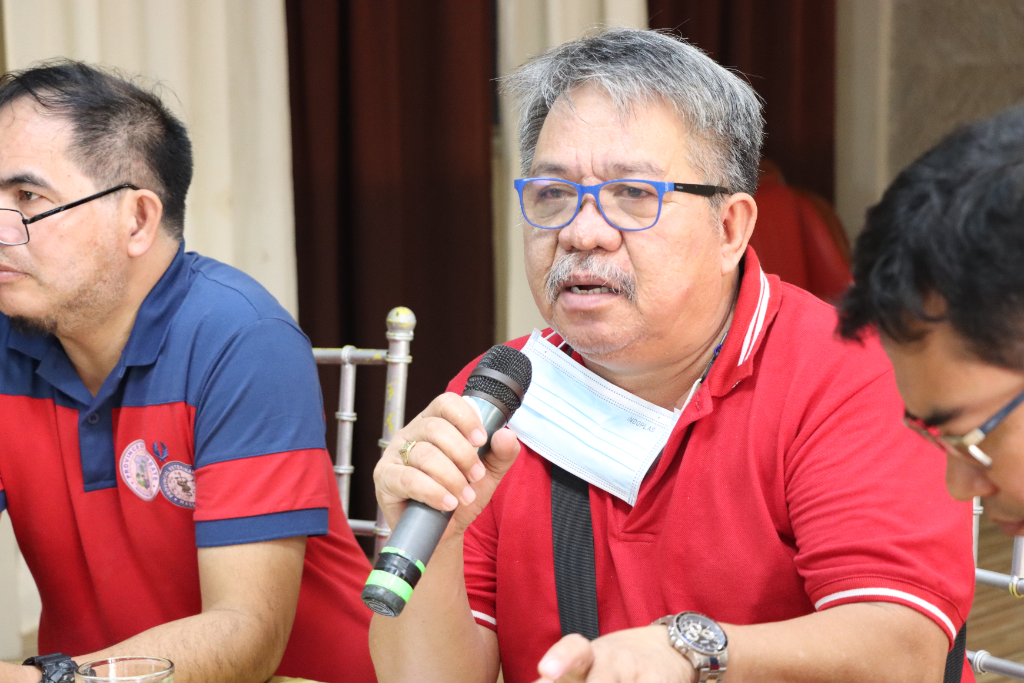
Provincial Veterinarian Dr. Hernando Dorongon shares his insights about the Dairy Cattle PCIP Matrix of Masbate.
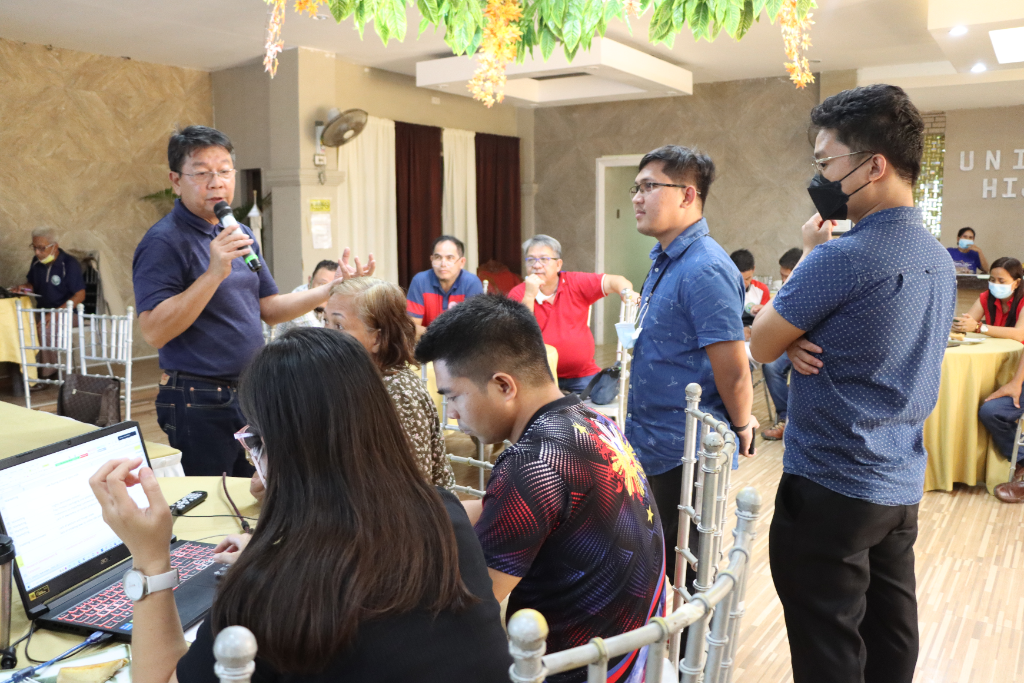
PRDP-Bicol Planning Officer Peter Theodore Caro assists the Provincial Core Planning Team (PCPT) in crafting the Commodity Investment Plan (CIP) for Masbate.
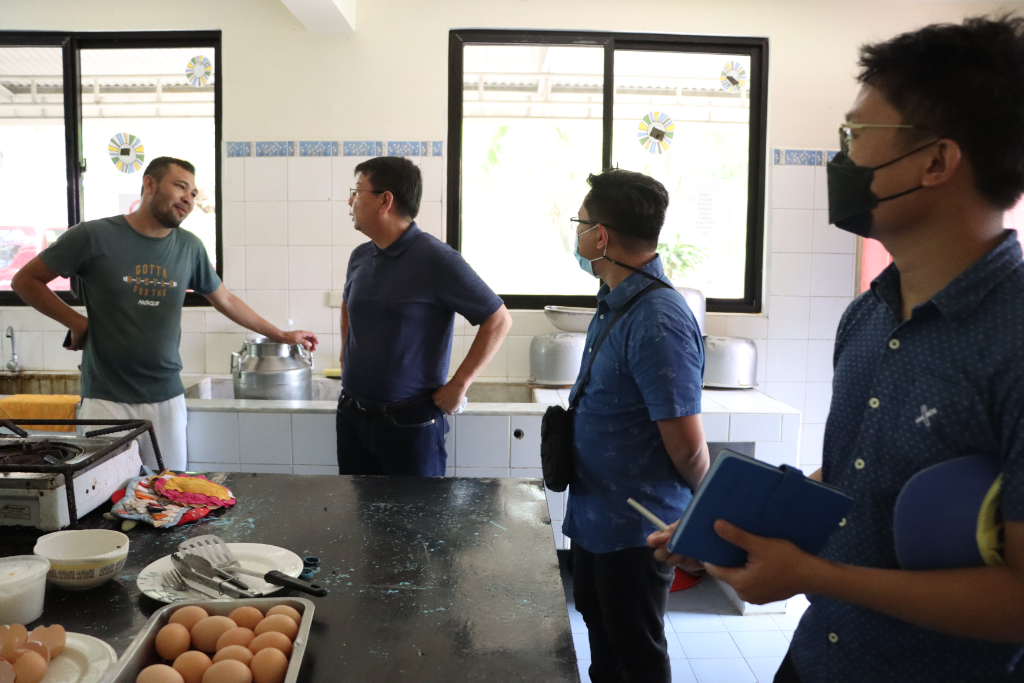
The PRDP-Bicol and PPMIU-PPDO-Masbate I-PLAN team conduct a learning exchange and key informant interview (KII) with Fazenda de Esperanza Resident Manager Rafael Silva and volunteer Santiago Bouças in Milagros, Masbate.
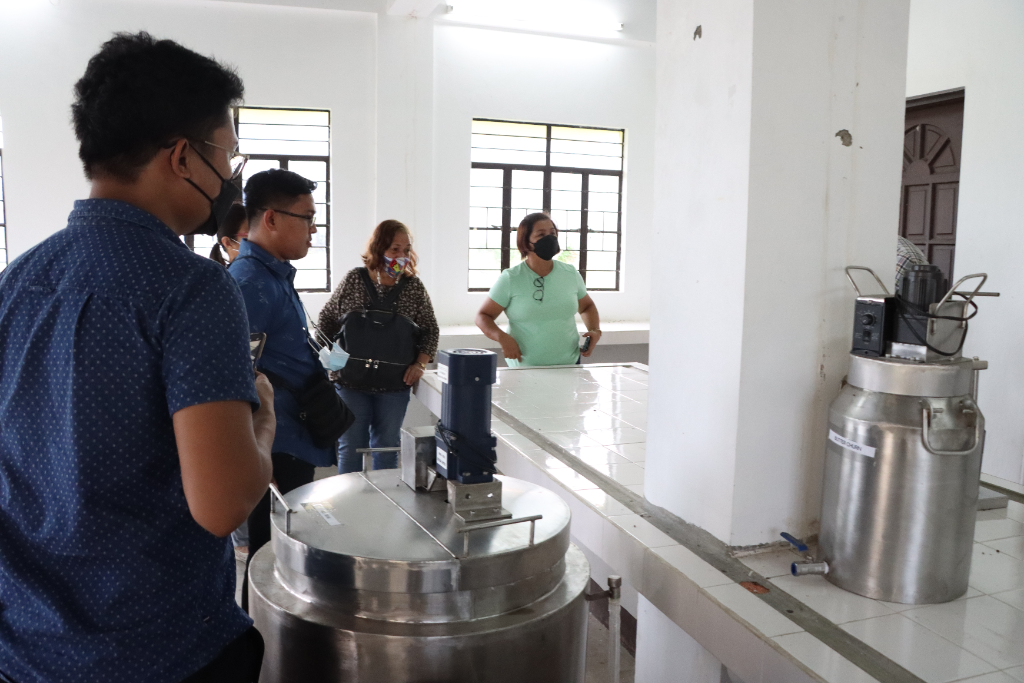
The PRDP-Bicol and PPMIU-PPDO-Masbate I-PLAN team visit the Shared Service Facility on Dairy Processing provided by the Department of Trade and Industry (DTI) to the Local Government Unit of Milagros.
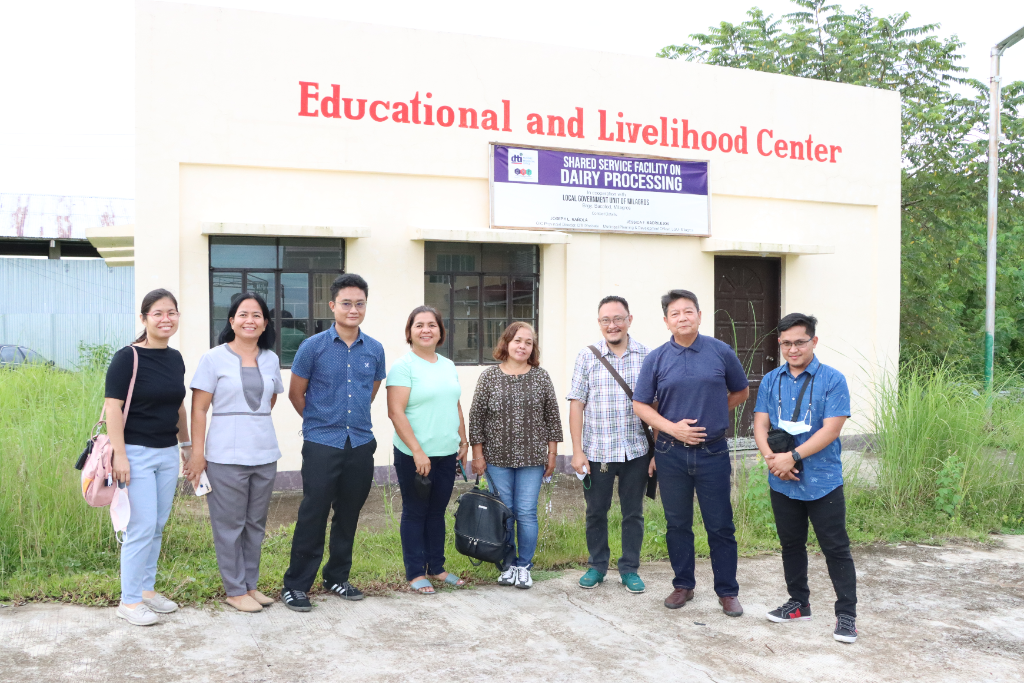
The PRDP-Bicol and PPMIU-PPDO-Masbate I-PLAN team visit the Shared Service Facility on Dairy Processing provided by the Department of Trade and Industry (DTI) to the Local Government Unit of Milagros.
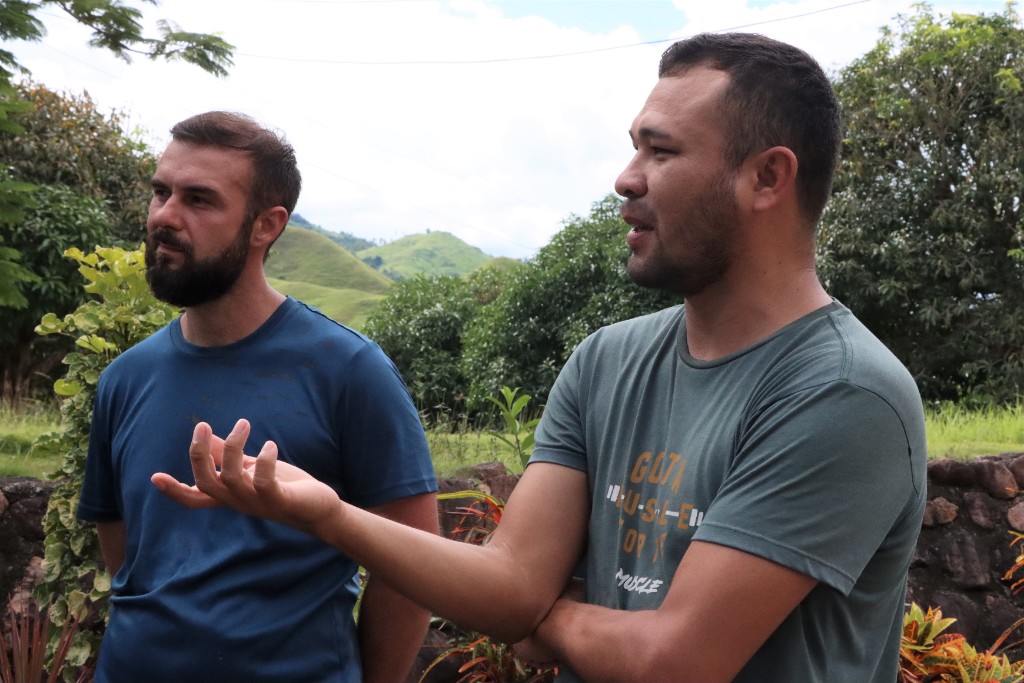
The PRDP-Bicol and PPMIU-PPDO-Masbate I-PLAN team conduct a learning exchange and key informant interview (KII) with Fazenda de Esperanza Resident Manager Rafael Silva and volunteer Santiago Bouças in Milagros, Masbate.

